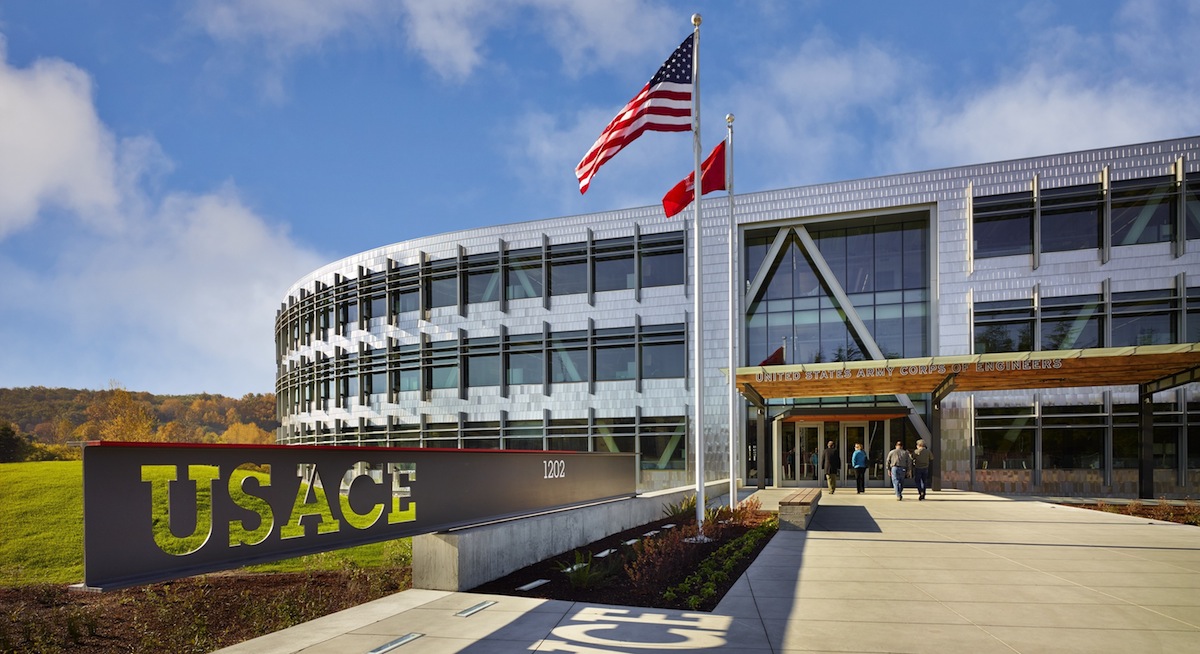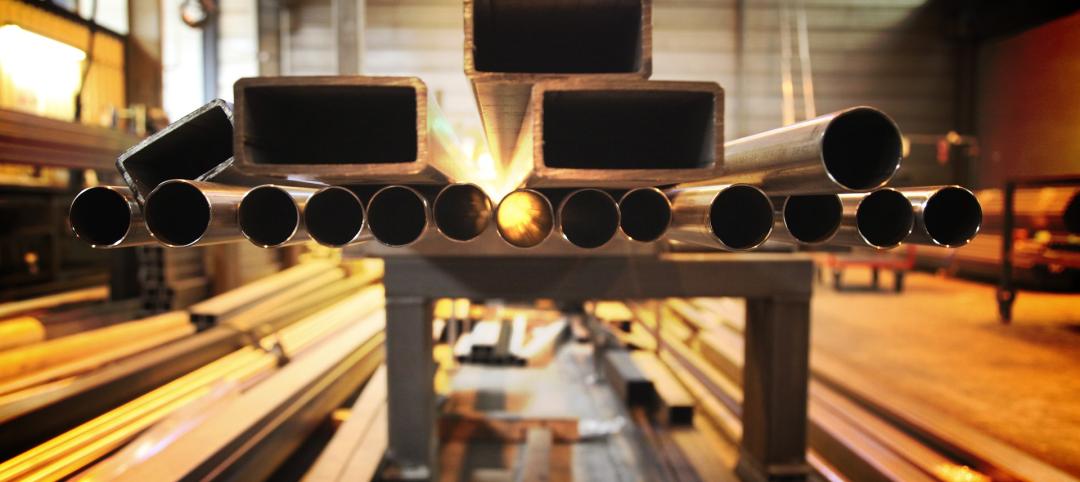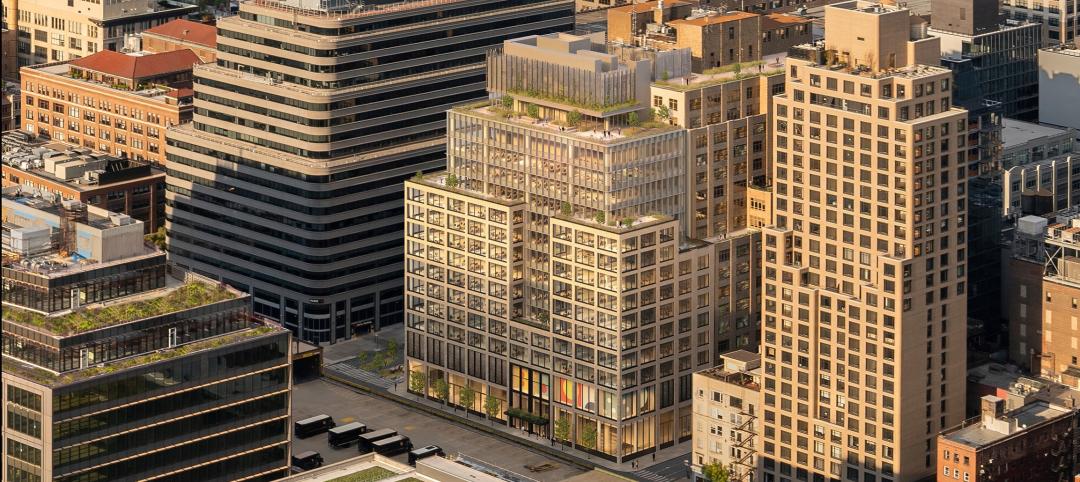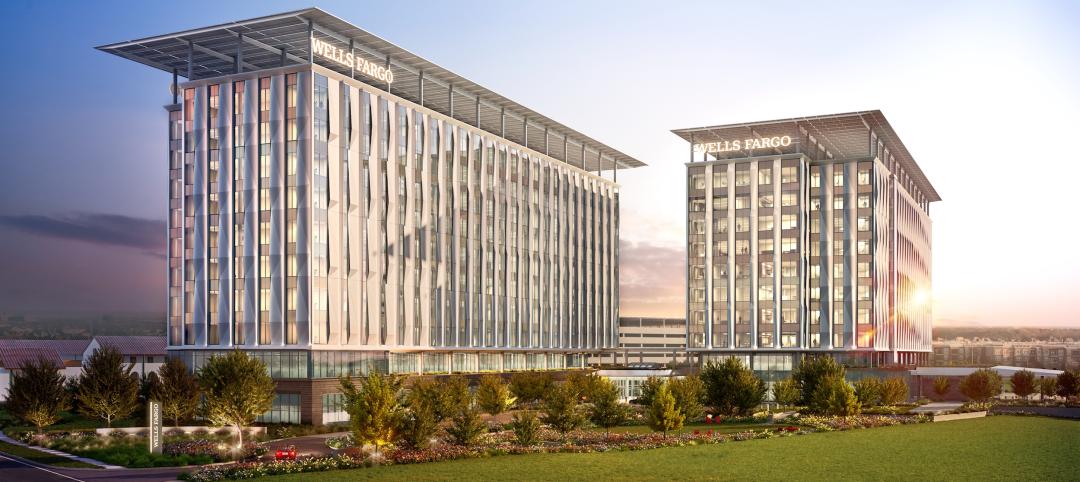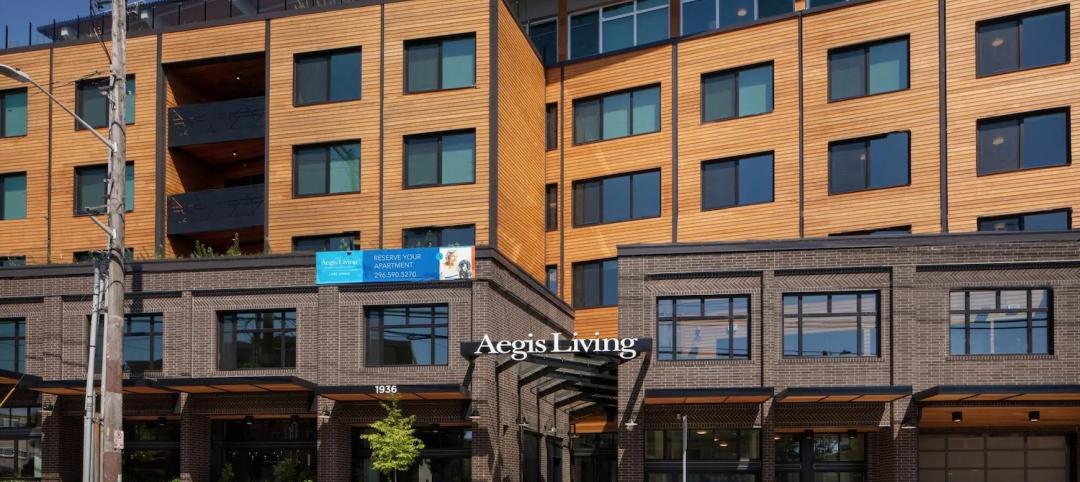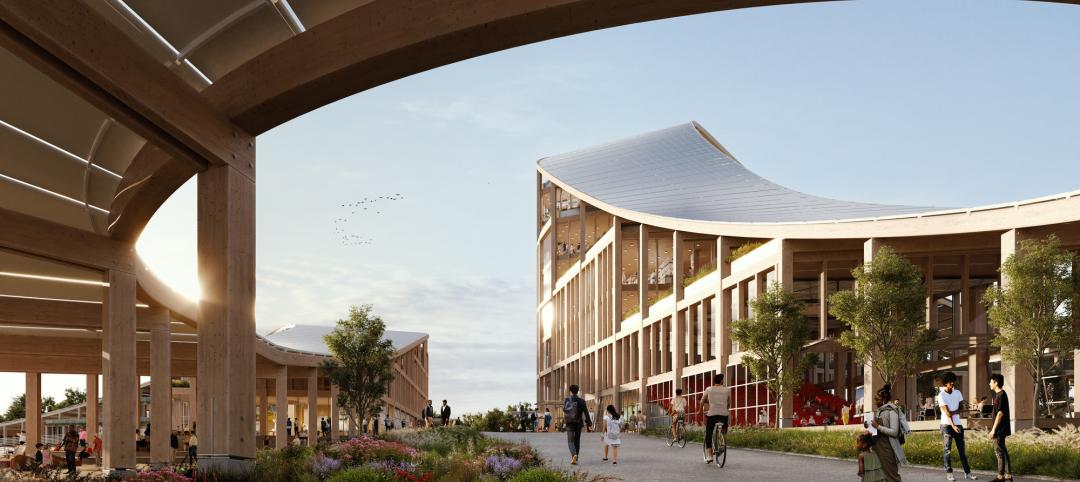The American Institute of Architects (AIA) and its Committee on the Environment (COTE) have selected the U.S. General Services Administration’s (GSA) Federal Center South Building 1202 in Seattle, as the recipient of the Top Ten Plus award. The Top Ten Plus, now its third year, recognizes one past AIA COTE Top Ten Project Award recipient which has quantifiable metrics that demonstrate the true impact the sustainable design has achieved.
The Federal Center South Building 1202, designed by ZGF Architects LLP and built by Sellen Construction, was selected in 2013 as a recipient of the AIA/COTE Top Ten Project Award program. More information on the design elements and images are available here.
The redevelopment project was part of the 2009 American Recovery and Reinvestment Act and was delivered on time and within the original $72 million budget. The new building transformed a previously toxic brownfield into a new standard for a high-performance, cost-effective, and sustainable workplace environment for the U.S. Army Corps of Engineers. Far from typical in government projects, the design and construction of the facility was completed in just 31 months as part of a rapid project delivery model.

Following a one-year measurement and verification period, it was established that the building’s energy performance is meeting the goal of more than 30% better than ASHRAE 90.1—the benchmark for commercial building energy codes in the U.S.
After the first year, the facility’s metered energy performance has met every design target, including the contractually required energy performance and the AIA 2030 Commitment. At of the end of last year, the Federal Center South building was using 61% less energy than the national average for similar buildings and 46% less water than a current plumbing code defined baseline.
“This project demonstrates the success of performance-oriented contracting and the value of both energy modeling and post-occupancy monitoring,” said Todd Stine, AIA, partner at ZGF Architects LLP. “The energy modeling done in the design phase showed a $55,000 energy cost savings each year associated with the high-performance systems integrated into the building. The post-occupancy evaluation looked at energy and workplace performance and has been crucial in determining how to best optimize all facets of how the building was intended to function.”
The COTE Top Ten Plus jury commented, “We admired ZGF Architects for their persistence over time to improve both their understanding of the planned performance of the building and its actual performance; they were genuinely curious about how the building was working out. There are signs of science and research in the relationship between daylighting and employee performance, along with evidence that the building has caused an enhanced environmental culture amongst its occupants.”

“The AIA COTE+ recognition is an honor and a testament to the teamwork between GSA, ZGF, and Sellen Construction to build a facility that not only exceeds GSA’s sustainability goals but delivers bottom line results that will save taxpayers money for years to come,” said GSA Regional Administrator George Northcroft.
To further enhance the building’s sustainable performance, the team developed, tested and evaluated enhancements to the base design during the design and construction of the project so that the GSA could incorporate upgrades into the project as funding became available. Through this process, the team was able to add rainwater harvesting, a geothermal system, enhanced lighting controls, an energy dashboard and improved glass in the main skylight.
This project was designed to meet GSA’s requirement for a building with a 50-year minimum lifespan, and mechanical equipment that lasts a minimum of 20 years. The campus site can also accommodate the 30-yearexpansion and redevelopment requirements for a number of federal agencies.




Related Stories
Mechanical Systems | Jun 16, 2023
Cogeneration: An efficient, reliable, sustainable alternative to traditional power generation
Cogeneration is more efficient than traditional power generation, reduces carbon emissions, has high returns on the initial investment, improves reliability, and offers a platform for additional renewable resources and energy storage for a facility. But what is cogeneration? And is it suitable for all facilities?
Multifamily Housing | Jun 15, 2023
Alliance of Pittsburgh building owners slashes carbon emissions by 45%
The Pittsburgh 2030 District, an alliance of property owners in the Pittsburgh area, says that it has reduced carbon emissions by 44.8% below baseline. Begun in 2012 under the guidance of the Green Building Alliance (GBA), the Pittsburgh 2030 District encompasses more than 86 million sf of space within 556 buildings.
Resiliency | Jun 14, 2023
HUD offers $4.8 billion in funding for green and resilient building retrofit projects
The Department of Housing and Urban Development (HUD) recently released guidelines for its Green and Resilient Retrofit Program (GRRP) that has $4.8 billion for funding green projects.
Steel Buildings | May 19, 2023
New manufacturing processes can make steel construction a greener option and add U.S. jobs
“Green steel” that is manufactured using hydrogen generated with renewable energy makes its use as a building material more feasible for environmentally conscious designers and clients. Sustainable manufacturing processes, which are economically viable in the U.S., could also revive steelmaking in the country as the metal becomes more attractive for green building.
Office Buildings | May 15, 2023
Sixteen-story office tower will use 40% less energy than an average NYC office building
This month marks the completion of a new 16-story office tower that is being promoted as New York City’s most sustainable office structure. That boast is backed by an innovative HVAC system that features geothermal wells, dedicated outdoor air system (DOAS) units, radiant heating and cooling, and a sophisticated control system to ensure that the elements work optimally together.
Headquarters | May 9, 2023
New Wells Fargo development in Texas will be bank’s first net-positive campus
A new Wells Fargo development in the Dallas metroplex will be the national bank’s first net-positive campus, expected to generate more energy than it uses. The 850,000-sf project on 22 acres will generate power from solar panels and provide electric vehicle charging stations.
Senior Living Design | May 8, 2023
Seattle senior living community aims to be world’s first to achieve Living Building Challenge designation
Aegis Living Lake Union in Seattle is the world’s first assisted living community designed to meet the rigorous Living Building Challenge certification. Completed in 2022, the Ankrom Moisan-designed, 70,000 sf-building is fully electrified. All commercial dryers, domestic hot water, and kitchen equipment are powered by electricity in lieu of gas, which reduces the facility’s carbon footprint.
Mass Timber | May 1, 2023
SOM designs mass timber climate solutions center on Governors Island, anchored by Stony Brook University
Governors Island in New York Harbor will be home to a new climate-solutions center called The New York Climate Exchange. Designed by Skidmore, Owings & Merrill (SOM), The Exchange will develop and deploy solutions to the global climate crisis while also acting as a regional hub for the green economy. New York’s Stony Brook University will serve as the center’s anchor institution.
Concrete Technology | Apr 24, 2023
A housing complex outside Paris is touted as the world’s first fully recycled concrete building
Outside Paris, Holcim, a Swiss-based provider of innovative and sustainable building solutions, and Seqens, a social housing provider in France, are partnering to build Recygénie—a 220-unit housing complex, including 70 social housing units. Holcim is calling the project the world’s first fully recycled concrete building.
Green | Apr 21, 2023
Boston to adopt stringent climate-friendly building code
Boston will soon adopt a new stringent green state building code that aims to significantly reduce carbon emissions in new construction and major renovations.


